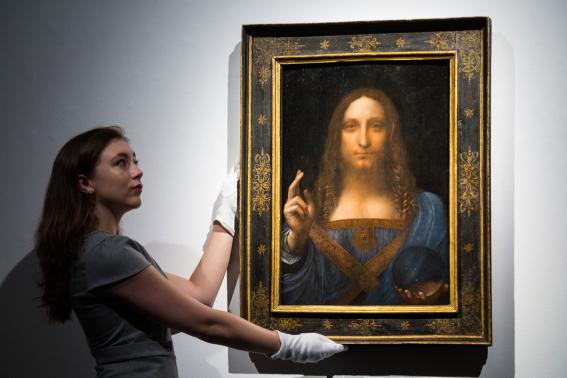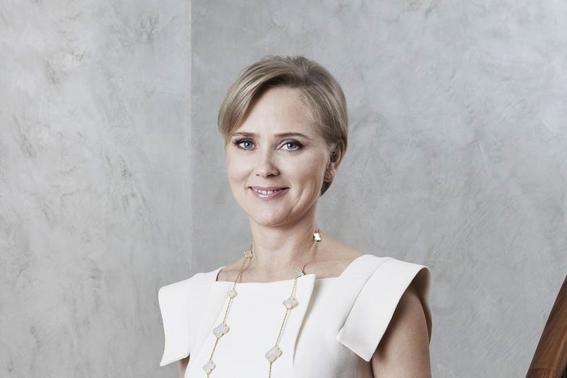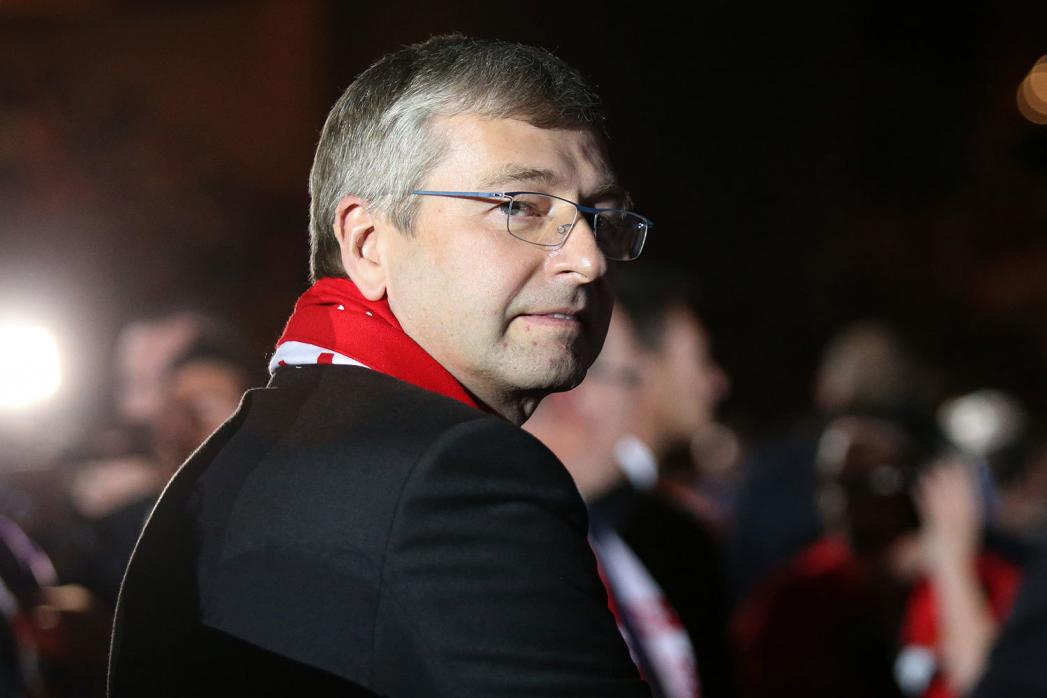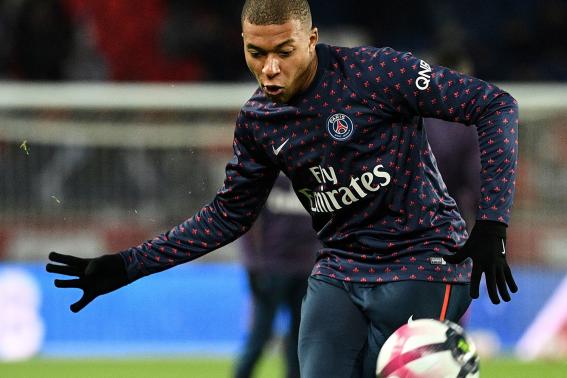There was a time when Dmitry Rybolovlev could be mistaken for royalty in Monaco: he was followed by up to five bodyguards – more than the monarch himself, Prince Albert II, wrote The New York Times (NYT). Sometimes the prince joined Rybolovlev in a luxurious box at the Louis II Stadium to watch games with the participation of the Russian-owned Monaco football club. Rybolovlev also participated in the christening of Albert’s twin sons in 2015, the NYT wrote. But lately the businessman has been in disgrace. And this week Rybolovlev, whose fortune was estimated by the American Forbes at $6.8 billion, was charged in a case of “corruption and influence peddling.” Why didn’t he settle down in Monaco?
From a doctor to a businessman
Rybolovlev is a Permian, born into a family of doctors, enrolled in a medical institute. From the 2nd year he worked in his specialty, Rybolovlev said in an interview with Vedomosti in 2006. After graduation, he went to work as a doctor, but then went into business. The first project was related to medicine: together with his father, he created a company that dealt with magnetic therapy.
At the same time, the securities market was emerging, and Rybolovlev sagaciously received a certificate from the Ministry of Finance for transactions with them. In Perm, he created an investment company, then an investment bank. As a result, when privatization began, the future oligarch turned out to be fully armed. Rybolovlev decided not to go into the oil industry: “There were people who thought this was their territory even earlier.” Therefore, the businessman bought shares of enterprises, in modern terms, of the second echelon – Uralkali, Solikamsk Central Bank, Silvinit, Neftekhimika. “The concentration on the chemical industry, and then on the narrower potash industry, turned out by itself – in the process of selecting enterprises in which, as it seemed to us, it was worth investing,” Rybolovlev explained. In addition, Rybolovlev had his own registrar, bank, CHOP, etc., wrote Kommersant.
The beginning of the 1990s was the time of initial capital accumulation. Crime has always appeared next to big money. Rybolovlev, according to Forbes, hired security back in 1993: “Periodically it was necessary to wear a bulletproof vest.” And in 1995, he sent his wife and daughter to Switzerland.
As Kommersant wrote, Perm criminals received part of the money from Neftekhimik. Rybolovlev collected 40% of the company’s shares and fought for control of it with Solvalub. In 1995, the rivals agreed on the joint management of Neftekhimik and the appointment of Evgeny Panteleimonov, who held a similar position at Solvalub, as CEO of the company. But after a while, the latter was shot dead. Rybolovlev was accused of organizing the murder. He spent 11 months in jail. The investigation believed that the crime could be related to the struggle for control of Neftekhimik. It was not possible to collect evidence, and in 1997 Rybolovlev left the pre-trial detention center. The arrest was a good lesson. “I realized that it is extremely important to build relationships with many people, including the authorities. Previously, I was just doing business and did not try to integrate into this system <...> Now I am sure that big business cannot exist outside the state,” he told Vedomosti.
Potassium control
In 2000, Rybolovlev acquired a controlling stake in Uralkali. His plans were to team up with Silvinit in order to concentrate the production of potash fertilizers in Russia in one hand and conduct an IPO.
The first attempt to place shares on the London Stock Exchange was in October 2006. Rybolovlev then put up for sale 20.84% of the shares, hoping to receive at least $ 907 million. But after closing the order book, he refused the deal. At that time, this was explained by the fact that it was not possible to place the entire package within the announced price range. But less than two weeks after the cancellation of the IPO, it became known that due to the accident, Uralkali would lose one of the mines in Berezniki – it accounted for about 20% of ore production – and a giant sinkhole formed in its place. The Rostechnadzor commission called the cause of the accident a “geological anomaly.” Two years later, Igor Sechin, who then held the post of deputy prime Minister, remembered about the accident. He demanded to investigate again and calculate the damage. The new audit decided that the cause of the accident was “a combination of geological and technological factors” and recommended that the company recover the value of reserves lost due to the flood. However, it did not come to the last one. Although Uralkali spent 8 billion rubles to compensate for the costs of the accident.

The world’s dearest Savior
A year ago, at Christie’s auction, Leonardo da Vinci’s painting “Savior of the World”, owned by Rybolovlev, was sold for a record price of $450.3 million with a starting price of $ 100 million. The name of the buyer of the painting was not disclosed. It could have been the Crown Prince of Saudi Arabia, Mohammed bin Salman al-Saud, the Associated Press reported, citing its sources. Such a high price is due to the fact that the “Savior of the World” is the only surviving da Vinci painting (there are less than 20 of them), which was in a private, not a museum collection. The canvas depicts Jesus Christ, in his left hand he holds a glass ball, the right is raised in a sign of blessing. The painting dates back to about 1500. For several centuries, the painting was owned by various European monarchs. Then for a long time it was considered lost. And in 1958 it was sold at auction for only 45 pounds (then about $ 125) as one of the works of the “da Vinci school”. The authorship of Leonardo himself became known only in the mid-2000s. In 2005, during the restoration, the canvas was freed from layers of paint superimposed on top of the original image. Thus, the “Savior of the World” became the last discovered painting by da Vinci after the “Madonna of Benoit”, found at the beginning of the last century. The purchase of the “Savior of the World” can be considered to have led to Rybolovlev’s current misadventures. He became the owner of the canvas in 2013, paying art dealer Yves Bouvier $127.5 million for it. It later turned out that the dealer himself had bought it for $80 million. In 2014, the businessman filed a lawsuit against Bouvier in a New York court: he accused the art dealer of fraud for a “surcharge” of more than $ 40 million. In May 2018, the New York court closed the case on the claim of the Russian. If the case had not been closed in a New York court, it would have allowed the defense to claim that the billionaire was not a victim of fraud, because he won from the sale of the painting in the end, Bloomberg reported.
In the autumn of 2007, Rybolovlev repeated the attempt and did not lose. During the IPO, he sold 14.4% of the shares for $1.07 billion. The businessman still had about 65% left.
And in 2010, Rybolovlev sold 53.2% of Uralkali and 20% of Silvinit to Suleiman Kerimov and his partners. In 2011, he sold the remaining 10% of Uralkali. The businessman did not explain the reason. Perhaps this step was prompted by difficult relations with the Kremlin after the mine accident, VTB experts reasoned at the time. It does not seem that Rybolovlev is selling Uralkali under pressure, his acquaintances told Vedomosti: when it is necessary to get rid of an asset, it is sold at a discount, and the owner of Uralkali demanded a premium. Rybolovlev’s friend explained the desire to sell Uralkali by good market conditions and fatigue of the businessman. As a result of the transactions, Rybolovlev earned more than $ 6 billion.
From Russia to Monaco
After the sale of Uralkali, Rybolovlev moved to Monaco and almost immediately bought the local football club of the same name. The desire to become the owner of a football team appeared to him in 2004, when the businessman got to football for the first time in his life – at the match of Roman Abramovich’s Chelsea in London, wrote Forbes. Rybolovlev was not closely acquainted with Abramovich, so he bought a ticket to the podium and watched the game surrounded by ordinary fans. “Dmitry came to the idea that if he ever had a chance to become the owner of a football club, he would definitely take advantage of it,” said his friend.
In 2011, Monaco was going through a severe crisis and needed an investor. He was not only relegated from the first division of the French championship, but also hung out at the very bottom of the second league standings, Forbes wrote. At the end of the 2010/11 season, Monaco’s losses amounted to almost 14 million euros, and all significant players moved to other clubs.
Rybolovlev pledged to invest at least 100 million euros in the team over four years. His company, Monaco Sport Invest, acquired 66.67% of the Monaco club. 33% remained with the Association Sportive de Monaco Football Club, which represents the interests of the Principality of Monaco. The amount of the transaction was not called, but the press wrote that the package in Monaco was given to the businessman for a symbolic amount of 1 euro.
In total, Rybolovlev invested about 335 million euros in Monaco, which were spent on transfers, player salaries and payment of team debts, the football club recently reported. After only 1.5 seasons, Monaco was able to return to the elite of French football. Since the 2014/15 season. Rybolovlev stopped pouring funds into the team, said his longtime associate, who headed Uralkali in 1999-2002, and now vice president of Monaco Vadim Vasiliev. In 2017, the club won the French Championship for the first time in 17 years. At that time, he showed the largest growth among Euroleague teams: Monaco’s revenue jumped by 86% to 144 million euros, KPMG analysts estimated. However, in a September interview with the French edition of L’Equipe, Vasiliev said that Rybolovlev did not take any euros from the club. “Dmitry Evgenievich once admitted that it is more difficult to manage a football club than such a colossus as Uralkali,” Vasiliev said in an interview with Forbes in 2015. “Making a football club successful and profitable at the same time is a very difficult task, but we do not give up on it.”
Painting is more difficult than football
It turned out to be easier to make the club successful than to understand art and relationships with people. In early 2015, Rybolovlev filed a fraud complaint with the Monaco police – allegedly he overpaid more than $1 billion when buying paintings from Swiss art dealer Yves Bouvier. At that time, Rybolovlev was a well-known art collector. For almost 13 years, Bouvier helped him buy 38 works of art, which cost Rybolovlev $2 billion. His collection includes works by Rodin, Gauguin, Modigliani, Van Gogh, Monet, Degas, Picasso and Matisse. According to Rybolovlev, Bouvier acted as his agent and adviser on transactions and received a commission of 2%. But later, the Russian discovered that Bouvier had bought many of the paintings in advance, and then resold them, earning in addition to commissions another $ 1 billion.

Swiss divorce
Rybolovlev’s divorce from his wife Elena also became one of the most high–profile in the world – the proceedings dragged on for 7 years and ended in October 2015. The businessman paid his ex-wife $ 604 million. Elena also received two houses in Switzerland. Rybolovlev was born into a family of doctors, he told Vedomosti in 2006. He graduated from the Perm Medical Institute. In his third year, he married a classmate. Dmitry and Elena have two daughters, Ekaterina, born in 1989 and Anna, born in 2001. From the second year, the future businessman worked as an orderly, and then as a nurse in the cardiological intensive care unit. He also worked there for a year after graduation. “It’s not that I really wanted to, but rather I had to go into business,” the businessman told Vedomosti. “I graduated from the Institute in 1990. Perestroika was already in full swing,” Rybolovlev recalled. – And it turned out that my salary is 120 rubles. and a surcharge of 10 rubles. for a red diploma.” Rybolovlev claimed that he had never paid the bandits. But due to fears “for the safety of the family,” in 1995 he took his wife and daughter to Switzerland. In 2008 Elena filed for divorce. Two years after the start of the litigation, Rybolovlev’s property was seized: paintings, furniture, bank accounts in Cyprus, Singapore and the UK, as well as shares in 48 companies. Elena accused her husband of trying to withdraw funds from the property to be divided, including through the purchase of expensive real estate on various trusts. For example, in 2008 Rybolovlev bought a mansion in Hawaii from Donald Trump for $95 million. And his daughter Catherine bought the most expensive apartment in New York, for $ 88 million, and the Greek island of Scorpios from the heiress of Aristotle Onassis Athena for $ 120 million. Rybolovlev’s representatives then reported that trusts were created in the interests of children and assets are inviolable from the division of property. February 24, 2014 Elena was arrested in Cyprus on charges of stealing a ring worth $25 million at Rybolovlev’s lawsuit, but she managed to prove that she received the ring from her husband in March 2008.
Shortly before this discovery, Rybolovlev became embroiled in a scandal involving the theft of Picasso paintings. In 2013, he acquired two paintings – “A Woman Combing her Hair” and “A Spaniard with a Fan” – from the same Bouvier. But Picasso’s stepdaughter Catherine Yuten-Blais claimed they were stolen from her private collection. Rybolovlev returned the paintings, explaining that he wanted “the truth to prevail.”
In February 2015, Bouvier was arrested on suspicion of manipulating art prices and money laundering, then he was released on bail of 10 million euros. The investigation into the case has not been completed, the art dealer has been charged with fraud and complicity in money laundering. Production facilities have been opened in Singapore, Switzerland and the USA for Bouvier, Rybolovlev’s representative says.
Along with Bouvier, the Russian accuses the famous auction house Sotheby’s of “contributing to the largest fraud in the history of art.” Sotheby’s was involved in 14 deals with Bouvier. As compensation, the businessman demands $380 million from Sotheby’s in the Federal District Court of New York.
Fatal conversation
The proceedings with Bouvier cost Rybolovlev dearly: the conflict turned into a scandal at the state level. The reason for this was the desperate desire of his lawyer Tatiana Bersheda to prove Bouvier’s guilt. At a private party, she recorded a conversation with Tanya Rappo on a dictaphone, who admitted that the prices of the paintings were really overpriced. It was Rappo who introduced Rybolovlev to Bouvier in 2003 and all this time was an interpreter in the negotiations between them. Rappo regarded the fact of this recording as an interference in her personal life and filed a lawsuit against Bersheda. Later, Rybolovlev himself was accused of the same thing.
Investigating this case, the investigation examined the data stored in Bersheda’s phone. This became the reason for a new investigation: it turned out that she was in close contact with senior officials of Monaco. For example, Bersheda allegedly alerted the Monaco police about Bouvier’s arrival at a business meeting, at which he was arrested. In addition, investigators found correspondence with the wife of the head of the Department of Legal Services of Monaco, Philippe Narmino – she thanked Bersheda for a helicopter ride to Rybolovlev’s Swiss chalet. French media also vied with each other to tell how Rybolovlev’s team courted local authorities. For example, a former policeman told investigators that up to 25 law enforcement officers received VIP passes to Monaco worth about $16,000 per pair. Rybolovlev’s representatives then retorted that politeness passes were an established practice. Narmino had to resign; he was charged, and his wife, son, and Bersheda herself are also among the accused.
Scandals are also rumbling around the club. The French newspaper Mediapart wrote that Rybolovlev created a secret fund for the prohibited purchase of rights to players. According to journalists, this is identified with money laundering. The club had to issue a denial, in particular, that Rybolovlev did not embezzle money from the sale of forward Kylian Mbappe. The 19-year-old was sold to Paris Saint-Germain this summer for a fabulous 180 million euros.
 The business of football players
The business of football players
In recent years, Rybolovlev has no need to support Monaco. The club is successfully implementing a strategy of finding and promoting young talents with their subsequent sale to the grand clubs. For such achievements, the club’s vice-president Vadim Vasiliev was twice awarded the prestigious Globe Soccer Awards. In 2015, Monaco set a world record: the team sold players worth more than 200 million euros. And according to the results of the 2018 Monaco summer transfer campaign, the balance of sales and purchases amounted to 188 million euros. The most resonant was the sale this summer of the 19-year-old pupil of the club forward Kylian Mbappe. Monaco signed him back in 2014. In August 2017, Mbappe joined Paris Saint-Germain (PSG) on loan until the end of the 2017/18 season with the Paris club’s commitment to buy out the player after this period for 180 million euros. Kilian became the second most expensive player in world history, paid more only for Brazilian striker Neymar, who also joined PSG in the summer of 2017. Frenchman Thomas Lemar was purchased for just 4 million euros in 2015. at the age of 19, and three years later he was bought by Atletico for 70 million euros. They managed to earn a little less on Anthony Martial: Monaco acquired him at the age of 17 for 5 million euros, and in 2015 Manchester United paid 60 million euros for him. However, sometimes the club is willing to spend significantly more. This summer, Monaco signed Russian Alexander Golovin for 30 million euros. The club paid more only for Colombians Hames Rodriguez and Radamel Falcao.
The law is not so harsh
Monaco is a safe haven for businessmen. To settle there, you need to earn the favor of the royal court, says Alexey Panin, director of the Moscow office of Urus Advisory. For Rybolovlev, the entrance ticket could be “Monaco”. “However, the situation is historical, a precedent that has never existed in the principality, and it will entail very serious consequences,” said lawyer Vladislav Kocherin from Kocherin and Parterres. Rybolovlev’s involvement in the corruption scandal raises many questions about the future of Monaco, because the club is a tasty morsel for many, writes L’Equipe. According to the newspaper’s sources, the businessman may be forced to sell the club in the coming months if things get bad in court and suspicions of corruption are confirmed. “We see no reason for such concerns,” Dmitry Chechkin, Rybolovlev’s representative, told Vedomosti.
Rybolovlev began to annoy the local establishment, says a local realtor working with wealthy buyers: too much money, too much noise and scandals. Monaco is a separate and very small state, it is not customary to go there with security at all, it is such a “Russian style”, Kocherin points out.
So far, Rybolovlev has been left under judicial control: he can leave Monaco, but he is forbidden to meet with persons involved in the proceedings, and he must also appear on the summons of the investigating judge. The essence of the accusations against him is not clear.
The punishment for corruption crimes varies from 5 to 10 years with the imposition of a large fine – hundreds of thousands, and sometimes millions of euros, says Alexey Anufrienko, a lawyer at the Art de Lex criminal practice. However, the criminal code of Monaco, in comparison with similar codes of other countries, is not the most stringent, especially in terms of economic, tax and official crimes, continues Alim Bishenov, managing partner of BMS Law Firm: “Therefore, Russian businessmen in Monaco should not be afraid of prisons, but become in a certain circle “non-violent” persons.”
Prince Albert II is closely following the case, Monaco Matin wrote on November 8 with reference to the court’s office. “It will be impossible to say about Monaco [after the investigation] that justice in the country is difficult and that justice is in the hands of the powerful. No one will spare them in Monaco,” the publication quotes the position of the royal house.
The Communications Department of Monaco addressed Vedomosti’s questions to the Prosecutor General of Monaco. Requests to the office of the Princely court, the Ministry of Foreign Affairs of the country, the Prosecutor General and Sotheby’s remained unanswered. Bouvier could not be contacted.



 The business of football players
The business of football players